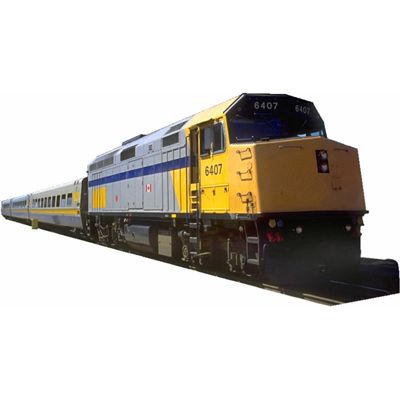From Longman Dictionary of Contemporary Englishlocomotivelo‧co‧mo‧tive1 /ˌləʊkəˈməʊtɪv $ ˌloʊkəˈmoʊ-/ noun [countable] especially American English  TTTa railway engine
TTTa railway engine
 TTTa railway engine
TTTa railway engineExamples from the Corpus
locomotive• These have now been carried out and this fine locomotive is back in service on the Centre's line.• This is where he tested his locomotives and his ideas on gas lighting.• Railways needed locomotives, rolling stock and signalling equipment, besides rails and bridges.• This particular locomotive was constructed in 1948, the year of nationalisation.• The ego of Arpaio is like the pot-bellied engine of an old steam locomotive.• Few expect the EU to take over as the locomotive of the world economy.• The visiting locomotives will progressively arrive during the Steam Festival and after a test run will be used on weekend passenger services.locomotivelocomotive2 adjective [only before noun] technical MOVE/CHANGE POSITIONrelating to movement an increase in locomotive powerExamples from the Corpus
locomotive• Both will seek to develop new markets and improve efficiency by adjusting timetables, introducing better locomotive diagramming and crew rosters.• In 1911 Gresley succeeded Henry Ivatt as locomotive engineer.• Sometime from the railyards across the river rises a great red locomotive flare that illuminates the horrid cliffs.• Siemens Verkehrstechnik has announced plans to set up a locomotive leasing operation by the end of this year.• Economic locomotive power came from the United States.• Machining a locomotive tire, he reported, was now done in one fifth the time. 
